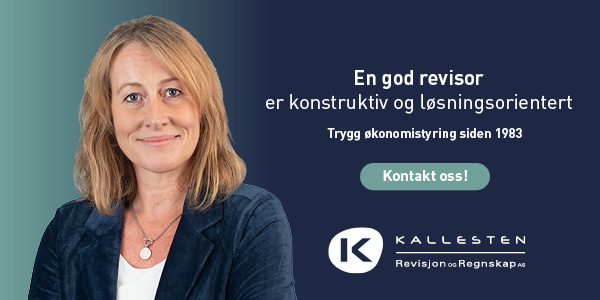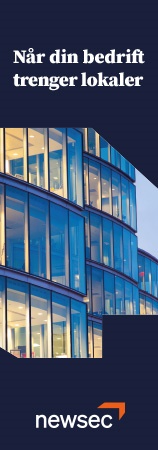
Working from home?
Most of what we knew about working from home was based on a handful of people who chose to work from home periodically. What we are all experiencing now is an enforced requirement to work and live within the same four walls. A concept that looks and feels very different to the privilege we had coveted pre-COVID. Even those who were used to working from home are likely to be finding this new reality to be somewhat different to their old existence. We have to remember that these are not normal times. Not only are we adjusting to online working we are doing so whilst we also learn to live through a pandemic.
WHY ARE WE SO EXHAUSTED WORKING ONLINE?
Working from home is our new reality and most of us are still trying to figure out how to make this work. If you are finding that you are more exhausted at the end of your workday than you used to be, you’re certainly not alone. "Zoom fatigue” is rapidly becoming an aspect of working from home that we are all becoming acquainted with. Zoom fatigue” describes the tiredness, worry, or burnout associated with the overuse of virtual platforms of communication. So many people are reporting similar experiences that it’s earned its own slang term, although this type of exhaustion applies whatever video-calling interface you find yourself using!
Why do we find working online so draining? There are a few reasons for this. In part, it is because working online forces us to focus more intently on conversations in order to absorb information. Relaxing into the conversation naturally is not an option when we are physically distanced therefore we have to work a lot harder to process and connect with one another. Video chats mean we need to work harder to process non-verbal cues like facial expressions, the tone and pitch of the voice, and body language; paying more conscious attention to these consumes a lot of energy. Silence is another challenge when working online. In face-to-face conversations silence creates a natural rhythm and space to reflect before replying, however, when it happens on a video call, it can make people feel anxious and uncomfortable. We try to fill the silence and the rhythm of our conversations become disrupted. An additional factor of working online is the knowledge that we are being watched, even if just by ourselves! Our web camera has the tendency to make us feel like we are looking into a mirror. Constantly looking at ourselves can leave us feeling distracted and exhausted. In acknowledging all of these factors although working online undoubtedly comes with extra stressors, our Zoom fatigue cannot be attributed solely to them. Our current circumstances – whether financial stress, quarantine, working from home or otherwise are also feeding in.
HOW CAN WE REDUCE FATIGUE?
COVID-19 has certainly provided an opportunity for renewed discussion about online working and the importance of the flexibility in the workplace and options available to employees to manage the way they work, where and when.As our new “normal” begins to unfold it seems that online working is here to stay in one way or another. But what of the future of online working and how can we take learn from the experiences of the past year and take better care of ourselves as we move forward in the arena of remote working? There are a number of steps we can take to reduce the negative effects of online video meetings.
CHOOSING THE RIGHT WORKSPACE
The quality of your workspace shapes your work-from-home experience . The size and location of your space, as well as whom you share it with, play a significant role in determining how well you’ve been able to work from home during the pandemic. This helps explain why perceptions of the remote-work experience as a desirable option vary widely along age, gender and socioeconomic lines. There is also a psychological advantage to having a dedicated workspace separate from your home environment. The office acts as a neutral area with a uniform aesthetic where everyone has access to the same resources. With the office becoming our home, and vice versa, however we may no longer feel that we are working on an equal platform. Choose a workspace separated from household noises and activity, ideally a room with a door that you can close. Establish a way of distancing yourself from household activity, for example agreeing with other members of the family that are also using the home to work common quiet hours or hours that you are unavailable as well as what circumstances warrant interruption. Without the commute to take you to work it is more challenging to have a psychological seguae as we move in and to of work flow. You might want to make your own commute to work such as beginning the day with a walk or run.
MINIMISE DISTRACTIONS
Reduce onscreen and environmental stimuli. Create a space that is clutter free and enables you to focus more easily. Reduce the onscreen clutter too. Put documents in folders, have a thoughtfully chosen quiet background, and list notifications. Research shows that when you are on video, you tend to be most distracted by your own face. This can be easily avoided by hiding yourself from view. Distractions however go far beyond yourself. When we are on video calls we not only focus on other peoples faces but also on their backgrounds as well. You look at the rooms they are in, their furniture, colour choices and everything else in between. You might even find yourself straining to read the titles of the books that they have on their shelves. The brain is processing all of these visual cues at the same time. To combat mental fatigue, encourage people to use plain or blurred backgrounds, or perhaps agree as a group to have everyone who is not talking turn off their video.
AVOID MULTITASKING
If you are engaging in numerous activities, you are never fully devoting your focus on anything. Psychologists refer to this ast continuous partial attention, and it applies as much to virtual environments as it does to real ones. Our brain cannot actually multitask, what it can do is switch quickly between tasks. It may be tempting to get other work done whist you are in a video meetings, however switching between tasks can cost you as much as 40 percent of your productive time. The next time you’re on a video chat, close any tabs or programs that might distract you, mute your mail notifications, put your phone away, and try to stay present in the conversation. You might be surprised by how different it feels.
SET BOUNDARIES - PHYSICAL AND PSYCHOLOGICAL
Research shows that remote workers tend to work longer hours than their office-based counterparts and experience a blurring of boundaries between their home and work lives. When you are working from an office there is a natural beginning and end to the work day. It is important to have similar boundaries and routines when you are working from home. Aim to stick to the same schedule each day and if possible, stop checking in with your work emails when your workday ends. Close the door on your home office (if you can) or hide away the laptop to minimise work reminders and make focusing on you own time easier. Boundaries and transitions are important; we need to create buffers which allow us to put one identity aside and then go to another as we move between work and private personas.
BUILD IN BREAKS
Building transition periods in between video meetings can also help refresh us. This is something we have all become very bad at as we transition to online working. Taking breaks in an office environment is natural and easy. We walk between meetings, meet colleagues in the kitchen whilst we hydrate, and go to the bathroom when our body tells us to! These days we are more inclined to run meetings together, jump over our lunch break and move almost never! Between each online meeting if you don’t have the time to take a walk outside try getting up out of your seat and stretching. Building in breaks allows us to stay focused and productive as our day progresses.
LIMIT VIDEO USAGE
Limiting video calls may also help you to feel less exhausted at the end of the day. Agree with your team that you can turn off your camera when and where it is appropriate. There should be more understanding that cameras do not always have to be on throughout the entirety of each and every meeting. Placing your screen off to the side, instead of straight ahead, could also help your concentration, particularly in group meetings. It makes you feel like you’re in an adjoining room, so may be less tiring.
On the whole, working from home through online means has allowed us to connect, remain productive and flourish in ways that would have been unimaginable even a year ago. In spite of the mental exhaustion they can generate and foster a sense of togetherness during a pandemic. Nevertheless if we are to transition to a “new normal” where online working is no longer a privilege but part of the fabric of our everyday lives we need to learn how to do this well and to care for ourselves and our colleagues in the digital world.
Andre liknende nyheter
April: the Weird and Wonderful Month
Norway is a country blessed with the four distinctive seasons: Winter, Spring, Summer and Autumn. In the month of April we are often treated to all of…
Sports & Outdoors
The Stavanger region offers majestic fjords, beaches and an impressive mountain landscape. Here you also find some of the most popular natural tourist…
What's on
Here you can find an overview of the webpages where all the events happening in the Stavanger region are posted! Go on, get busy exploring!





